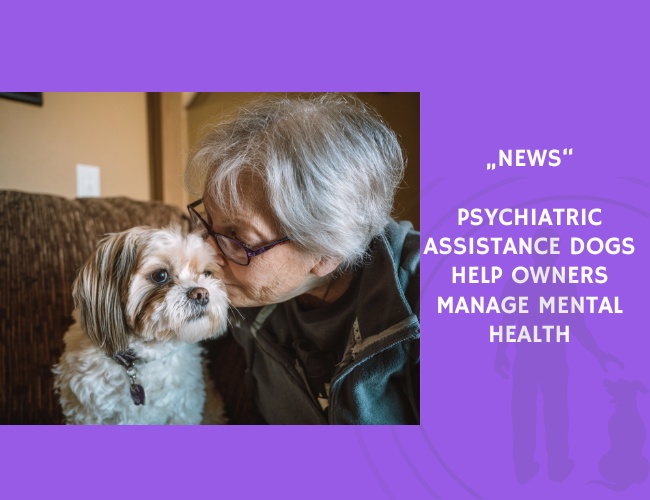Psychiatric assistance dogs (PADs) are specially trained to help individuals manage mental health conditions including PTSD, depression, anxiety, bipolar disorder, and schizophrenia. A review published in Frontiers Research Topics by Patterson-Kane, Arnason, and Yamamoto provides detailed insights into the lived experiences of 199 PAD owners in Australia, all of whom were registered with the nonprofit organization mindDog.
The survey revealed that PAD owners reported a wide range of psychiatric diagnoses, with depression (84%), anxiety (61%), and PTSD (62%) being the most common. The dogs performed a diverse set of functions tailored to their handler’s needs: tactile stimulation (94%) to reduce anxiety, nudging or pawing (71%) to bring owners back to the present, and blocking physical contact (42%) from others, among other tasks.
Interestingly, none of the PADs were professionally trained by service dog organizations. Instead, most were either trained entirely by the owner or co-trained with a qualified trainer. Many of these dogs began as family pets, indicating that effective PADs don’t necessarily require specialized breeding or early conditioning.
Regarding mental health service usage, 46% of participants reported decreased use due to fewer suicide attempts, hospitalizations, and medication needs. Meanwhile, 30% experienced increased service usage thanks to enhanced capacity to attend appointments, illustrating the varied impact PADs can have on healthcare engagement.
Despite differences in training backgrounds and tasks performed, every participant described their relationship with their dog as positive. This finding underscores the profound emotional bond that can form between a person and their PAD, further supporting the dog’s therapeutic role in mental health support.
Source: Patterson-Kane, E., Arnason, L., & Yamamoto, M. (2020). Assistance Dogs for People With Disabilities. Frontiers Research Topics. Review article.










